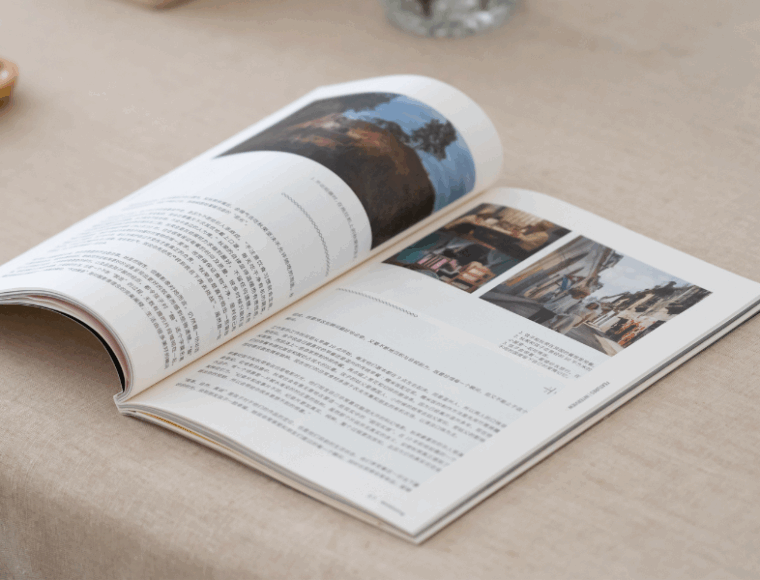


Browse Our Newsletter
Healing Systems, Not Just People: Healing Health Inequalities
Read more

Can you tell us a bit about your background and what led you to work in family services within the prison system?
I was a pub manager for many years, running some great pubs in South-West London, but I always knew that I wanted to do something that felt more meaningful to me. I’ve always been affected by social injustice and spent many years allowing myself to be distressed by the news, while making no real contributions to the causes I professed to care about so much. In 2017, I decided to find something to do with my time that helped me feel like I was making a difference in some small way. I started volunteering at a Winter Night Shelter for people experiencing homelessness alongside my full-time role, and that changed my life. When a job became available at the charity where I was volunteering, I applied and took a substantial pay cut to take the job. I’ve been working in charities ever since.
My last role was managing a team of Progression Coaches at a homelessness charity in Liverpool. Our team worked to deliver and broker learning and development activities that helped people connect with the wider community and make the transition out of homelessness services.
In 2024, I was ready for a new opportunity and had the privilege of seeing a showcase for one of the programmes that SIG Safe Ground delivers at HMP Altcourse. I was so moved by the presentation that I immediately applied for the job managing their family services. My background in management and delivering group activities felt like a strong fit for the role. I was also very lucky to have Emma as our Head of Service. Her passion for the work was infectious and made me want to be a part of it. This role has been challenging in many ways, but it’s also been transformative, and I’ve grown a lot, in large part because I’ve had her as a mentor.
What personal or professional connection do you have to Liverpool, and how does that influence your work at HMP Altcourse?
I am from Prescot (a small town near Liverpool) and grew up in the area. I spent a lot of time in Liverpool when I was growing up, and it has always felt like home. I lived in London for over a decade and had some wonderful experiences, but I always missed my hometown. I moved back a couple of years ago, and it was the best decision I could have made. The people of Liverpool are among the most friendly, welcoming, and hospitable in the world, and I feel very grateful to work here. HMP Altcourse serves a much broader population, with families visiting from all over the country. Still, I would like to think we offer Liverpool’s sense of community to everyone who visits.
What types of support does your team provide to families and prisoners, and how do you tailor that support to meet individual needs?
Our SIG Safe Ground Family Service at HMP Altcourse supports both the men in custody and their families through a mix of arts-based, therapeutically informed group programmes, counselling, and practical help. We manage the Visitors Centre and act as a bridge between families and their loved ones inside, offering a calm and welcoming space along with tailored support.
Sometimes that means helping someone prepare for a difficult visit, offering emotional support during a tough time, or creating space for men to build better relationships through our programmes. Everything we do is rooted in the belief that strong relationships and connections are key to rehabilitation and recovery.
What does a typical day look like for you and your team inside the prison?
Our team is responsible for the day-to-day running of the Outside Visitors Centre at HMP Altcourse. We facilitate four visits a day, seven days a week, with nearly 40,000 visits annually, in an effort to make what can be a challenging experience a little less difficult. It’s a very busy space. We’ve done our best to make it feel welcoming, supportive, and child-friendly, aiming to make what can be a challenging experience a little less difficult.
Every day, our amazing and infinitely knowledgeable Family Liaison Team books families and significant others in for their visits. They ensure everyone has the correct documentation, book them in, and provide any information they need. The team is an expert in delivering the warmest welcome. People often come into the centre upset, stressed, and anxious, and it’s an absolute privilege to witness how the team transforms their experience with warmth, knowledge, and kindness. Nearly everyone leaves the desk smiling.
While visits are taking place, our Family Counsellor, Linda, is busy supporting families in lots of different ways. Linda is incredibly hardworking and cares deeply about the families we support. She offers one-to-one counselling for partners of men in custody who are having a particularly difficult time and works with whole families to help them come to terms with their experience. Linda also delivers our core programmes, ‘Man Up?’ and ‘Fathers Inside’, and then provides follow-up support by running weekly group counselling sessions for the men who’ve completed them. On top of that, she collaborates with a Family Link Worker to deliver a pioneering family therapy programme. This includes ‘Stay and Play’ and ‘Dad and Kids Club’ sessions, giving dads meaningful time with their children while their partners receive counselling. Linda is a pillar of support for the whole team—we’d be lost without her!
Our small programme delivery team works exceptionally hard to recruit, interview, and schedule men onto our programmes. Lynne is the face of SIG Safe Ground inside the prison. Everyone knows her name, and she brings light everywhere she goes. Lynne is also an exceptionally skilled facilitator. Her ability to balance compassion, creativity, and fun is unmatched. We deliver 18 programmes a year at HMP Altcourse, which is a big task! The programmes we currently deliver are ‘Man Up?’ and ‘Fathers Inside’. Both are designed to help participants explore and redefine their identities through creative, group-based learning, fostering stronger relationships, and personal growth. We’ve had brilliant feedback from participants and their families, and we are very proud of our programmes and our team.
Reflection is at the heart of SIG Safe Ground’s approach. We continually learn from the families and individuals we support, as well as from one another. We build reflective moments into our day wherever we can. After every delivery, we debrief as a team, and we always ask each other the important questions that help us think about our motivations, challenge our assumptions, and strengthen our practice.
What are some of the most rewarding moments you’ve experienced in your role so far?
Almost all of the most rewarding moments I’ve experienced in my role have come from seeing positive changes for the men and their families as a result of the work we do. Our ‘Fathers Inside’ showcase is always a highlight. It’s a presentation at the end of the month-long programme where participants share what they’ve learned. They take full ownership of the day. They lead games with the attendees, present theatre pieces they’ve directed themselves, and read poetry they’ve written during the programme. It always moves the audience to tears, even the most hardened members.
I had a moment last week that really reminded me why our work is essential. One of our visitors left her visit very upset after an interaction with a member of the prison staff. I spoke to her for a while and found out that her son was one of our programme participants. When she realised we were the ones delivering the programmes, she burst into tears and said we’d never know how much of a difference we’d made to him and to their relationship. She laughed and said, “He always asks how my day was now. He never did that before.”
I feel incredibly lucky to be part of something that can have that kind of impact.
If you could change one thing about the criminal justice system to better support families, what would it be and why?
If I could change one thing about the criminal justice system, it would be a fundamental shift away from a system built on judgment, shame, and punishment, and towards one which focuses on rehabilitation and connection. Prison, as it currently stands, is a place where people are defined by their mistakes and isolated from the people who matter most to them. The overwhelming evidence shows that this model has minimal impact on reducing reoffending. Recidivism rates remain high because punishment does not address the root causes of crime, nor the environmental and sociocultural influences and personal traumas which lead people down such a path.
Families are a lifeline for people in custody. Investing in those relationships can create a powerful foundation for change. Connection is not a ‘nice-to-have’; it’s a necessity. We need to see families as partners in rehabilitation, instead of being the collateral damage of the syste m. I hope for more resources for family support services, more family therapy programmes, more opportunities for meaningful contact, and a culture within the criminal justice system which values empathy and healing over shame and isolation.
How can partners, commissioners, and other charities best support the work you’re doing at HMP Altcourse?
Partners, commissioners, and other charities can best support the work that SIG Safe Ground are doing at HMP Altcourse by providing consistent, flexible funding which would allow us to deliver and expand our programmes to meet the needs of men and their families.
Beyond funding, strong collaboration is essential. By working together with a shared commitment to rehabilitation and family connection, we can create a more seamless and supportive experience for families both inside and outside of the prison. We work with many external agencies and partners already, but I hope to expand on this with time.
It’s also important that partners and commissioners listen to the voices of those with lived experience and respond to their needs with empathy and innovation. SIG Safe Ground are working towards a model which builds the experiences of the men and their families into everything that we do.